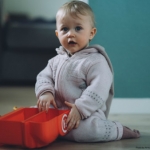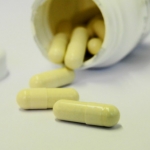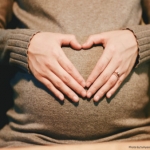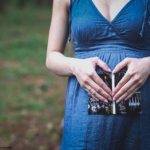Depression during pregnancy is relatively common, affecting about 10 to 15% of women. While there is a growing body of literature supporting the reproductive safety of certain antidepressants, our understanding of how these psychotropic medications affect the developing fetus remains incomplete. For this reason, many women and their physicians would prefer to avoid the use of antidepressants during pregnancy; thus, there is a clear need for effective non-pharmacologic treatments for women who suffer from depression during pregnancy. In a recent study from Dr. Rachel Manber and her colleagues at Stanford University, the use of acupuncture is assessed in a group of pregnant depressed women.
In this study, 61 pregnant women with DSM-IV major depressive disorder and a score >14 on the 17-item Hamilton Rating Scale for Depression (HAMD-17) were randomly assigned to receive one of three treatments: an active acupuncture (SPEC, n=20), an active control acupuncture (NSPEC, n=21), and massage therapy (MSSG, n=20). Participates received treatment over an 8-week period consisting of 12 sessions (25-30 min each). Acupuncture treatments were provided in a blinded fashion. At baseline, an assessing acupuncturist (non-blinded) designed a set of treatments that was individually tailored and updated monthly during the course of treatment. A different acupuncturist, the treating acupuncturist, was blinded and needled the points that were prescribed by the assessing acupuncturist. Each SPEC and NSPEC treatment consisted of the same number of acupuncture points distributed across the same general areas of the body. Responders to acute phase treatment (those with HAMD-17 score of < 14 and a greater than 50% reduction from baseline) continued the treatment they were initially randomized to receive until 10 weeks postpartum. The HAMD-17 was administered at baseline, midpoint, end of acute treatment, and 10 weeks postpartum by a blinded interviewer. The Beck Depression Inventory (BDI) was completed weekly during the acute treatment phase.
Response rates at the end of the acute treatment phase were statistically significantly higher for those receiving acupuncture for depression (SPEC 69%) than for those receiving massage (MSSG 32%), while those in the acupuncture control group (NSPEC) had an intermediate response rate (47%). At 10 weeks postpartum, all three groups had a significant reduction in depressive symptoms based on the HAMD-17 and BDI scores; however, the proportion of remitted participants (those with HAMD less than 8) in the SPEC group were significantly greater (86%) than in NSPEC (50%) and MSSG groups (67%). Although this study is limited by its small sample size, it suggests that acupuncture may be an effective treatment for women who suffer from depression during pregnancy.
Response rates in this study are similar to those reported in studies assessing the efficacy of other non-pharmacologic interventions, including interpersonal psychotherapy and cognitive-behavioral therapy, in pregnant and postpartum populations. Acupuncture may also help to protect women from postpartum depression. Although high rates of postpartum depression are typically observed among women who suffer from depression during pregnancy, significantly lower rates of postpartum depression were observed in those participants receiving acupuncture for depression as compared to the two other control groups. These findings underscore the importance of effectively treating depression during pregnancy and highlight the need for effective non-pharmacologic interventions for the treatment of depressive symptoms that emerge during pregnancy.
Ruta Nonacs, MD PhD








Leave A Comment